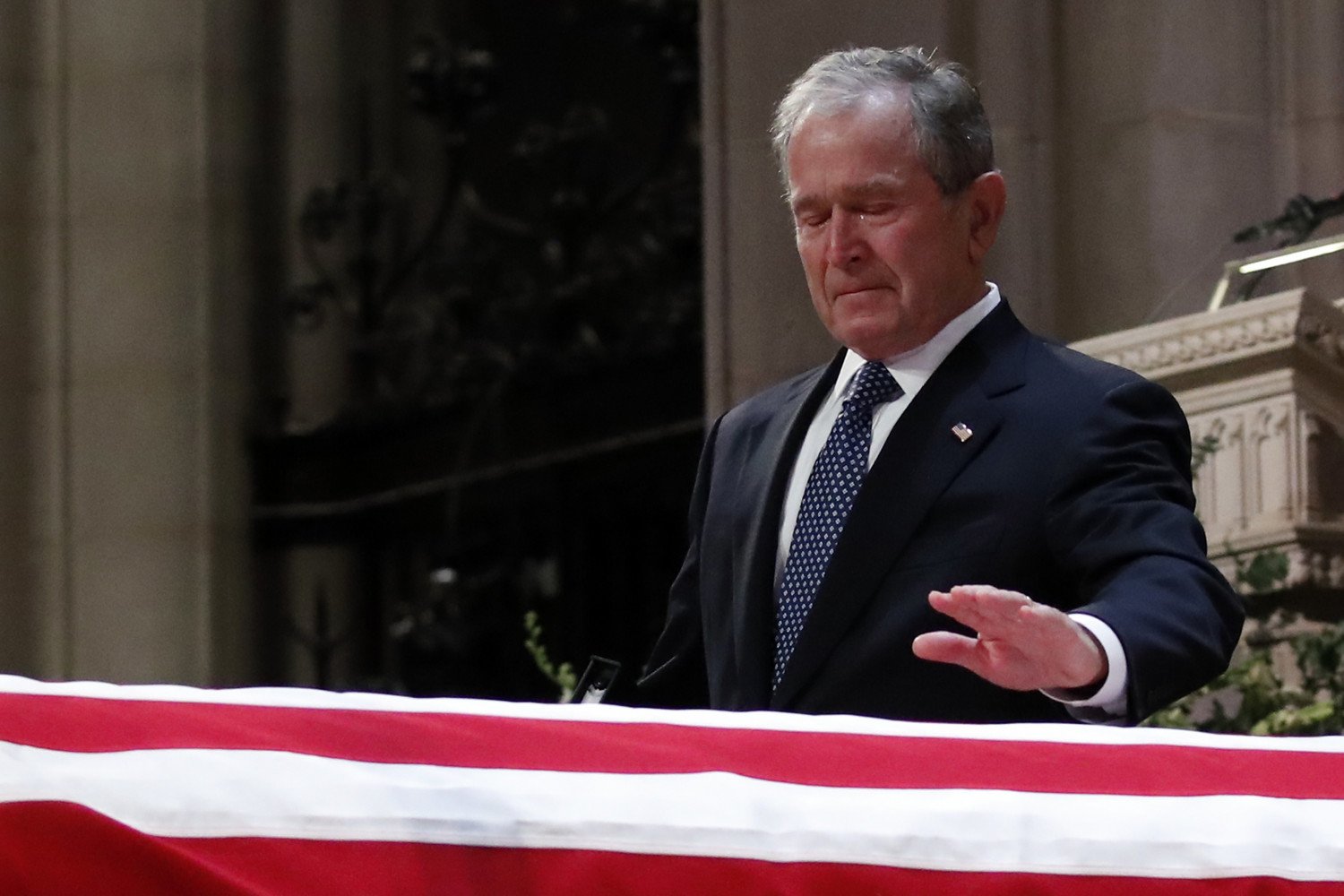Search for topics or resources
Enter your search below and hit enter or click the search icon.
October 16th, 2006 | 4 min read

Recently, I watched the 1965 Civil War film Shenandoah starring the lovable Jimmy Stewart. The film deals with the question of what it means to be an American, as seen through the lives of the Anderson family, of which Stewart’s character, Charlie, is the head. The film portrays this family as independent, seeing its share of troubles, and, ultimately, needing to go back to church to find meaning in life.
Charlie Anderson raises his six sons and daughter to be rugged individuals who work fiercely to keep the farm running. His wife passed away at the time of the birth of their youngest son, the Boy, and Charlie still deeply grieves her death. The family’s position on slavery: only weaklings need slaves to do their own work for them. This sets them apart from their fellow Virginians, who at the time of the film are in the last throes of the Confederacy, with the Union army marching to inevitable victory. But they cannot remain uninvolved for long.
Charlie Anderson “prays” at meal times telling God how hard they worked for the food and reminding Him that without their hard work they would never have had any: a sacreligious, though comical invocation of the Divine, to be sure. Charlie takes the family to church – though always late and only to satisfy his wife’s last request. He challenges his boys to speak their mind regarding the war that they are itching to fight, and argues them into the position that it isn’t their war. The South are fighting to protect slavery, which they won’t have anything of, and they don’t much care for the Yankees, so it makes sense to remain neutral.
That is until the Union army, marching across the Andersons’ land, mistakes the Boy for a Rebel soldier and take him custody. Once the boys and Charlie find out he is missing they set off across country to find him. Along the way his eldest son is shot by a young Confederate on accident and killed. They mourn his loss and their failure to find the Boy. When they get home, more grief awaits. Vandals murdered the son who stayed behind to watch the farm and his wife. Charlie, having lost three sons and a daughter-in-law, stands over the family burial plot and tells his grief to his wife. He cannot find any meaning in this suffering, caused by a war he didn’t want. He trails off pleading with his wife to show him what to do.
Church bells in the distance sound in answer. Charlie realizes that he must go to church and packs up the family. They file in and sing the last couple of lines of A Mighty Fortress is Our God:
Let goods and kindred go, this mortal life also;
The body they may kill, God’s truth abideth still, His kingdom is forever.
Unexpectedly, the Boy walks in, the family is reunited in joy, the doxology starts up from the congregation, and the last shot is the peaceful church house – a house of joy.
Though the film has plenty of anti-war sentiment and treats the Civil War with too much simplicity, the message is a striking one: meaning cannot be found in living life day-to-day or even in the joy of family. Meaning is not found in battle, nor on the farm, but in the church. This message must have been received with earnest approval or scorn in the 1960’s context in which it was released. American society was making a move away from the church and experimenting with all kinds of new lifestyles. This experimentation could be a good thing, but would it help people understand life and death and teach them what to do in war or peace, in feast or famine, in sickness and in death? Christianity has answers and deep rituals to address these questions. It provides ceremonies and ideas that comfort in times of trouble. Shenandoah makes this principle vividly clear.
The evangelical church of today must draw a lesson from the film: become a place of answers again. Our churches hvae succombed to the idea that Christianity doesn’t have a say in the “real world.” Christianity only applies to little, quirky sub-groups in society – and then only in a private way. Besides losing the footing to provide answers to a questioning world, the church also has lost the ritual form of life that helps mankind be joyful in seasons of happiness and mourn in seasons of grieving. The marriage ceremony is a sad example of this loss. For centuries, English speaking protestants got married to the rich words of the Book of Common Prayer – from what I understand, this wording isn’t terribly different than the Catholic rite. Now, evangelicals have abandoned such rich traditions and make up vows that usually contain a heresy or two and invariably say something silly like: “I’ll always be passionately in love with you.” I think it is imperative to re-capture these meaningful traditions and apply them to help those in the community grieve and rejoice appropriately.
Shenandoah lacks excellent dialogue and suffers from too many distracting subplots. But bolstered by the superb acting of legendary Jimmy Stewart and the deep themes of love, war, and Christianity, the film speaks a message that our culture – sacred and secular alike – should pay close attention to.
Matthew Lee Anderson is an Associate Professor of Ethics and Theology in Baylor University's Honors College. He has a D.Phil. in Christian Ethics from Oxford University, and is a Perpetual Member of Biola University's Torrey Honors College. In 2005, he founded Mere Orthodoxy.